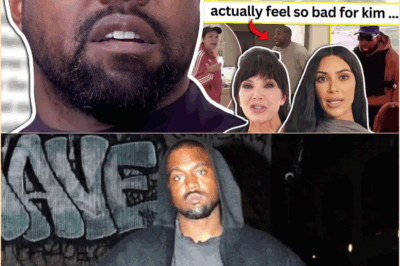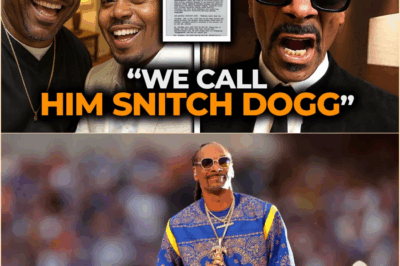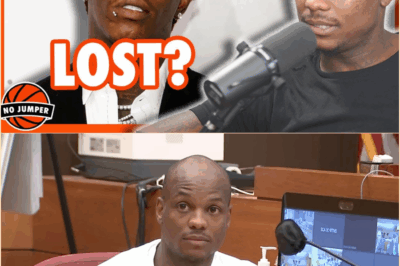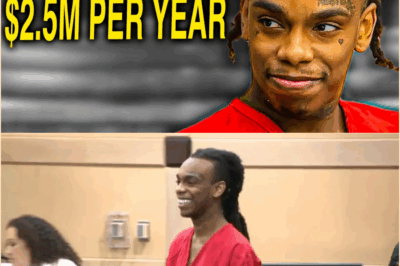In the heart of Los Angeles, where legacies are built on loyalty and respect is the ultimate currency, a storm has been brewing. It’s a conflict that pits brother against icon, principle against pragmatism, and the sacred memory of a fallen king against the ever-evolving landscape of hip-hop. This is the story of how Black Sam, the stoic brother of the late, great Nipsey Hussle, declared a cold war on Snoop Dogg, a titan of West Coast culture, igniting a firestorm that reveals decades-old wounds and questions the very soul of their shared heritage.

The first public shot was fired on a seemingly celebratory day in April 2025. The grand opening of Marathon Burger, a venture meant to continue the entrepreneurial spirit of Nipsey Hussle, should have been a moment of unity. Instead, it became a battleground. Black Sam, his voice cutting through the festive atmosphere, confronted Rockstar 2800, a known affiliate of music executive Wack 100. The message was brutally clear: anyone associated with those who had disrespected Nipsey’s name was not welcome. This wasn’t just about one man; it was a direct message aimed at a network of influence, and at its center, in Black Sam’s view, stood Snoop Dogg.
To understand the depth of this animosity, one must first understand the figures of Wack 100 and Big U. Since Nipsey’s tragic death, Wack 100 has been accused of making disparaging remarks about the slain rapper, questioning his legacy and street credentials. For Black Sam, who has fiercely protected his brother’s memory, these words were unforgivable. Snoop Dogg’s continued association and business dealings with Wack 100 were seen as a profound act of disrespect—a tacit endorsement of the very slander that cut so deep.
Adding another layer to the betrayal is Snoop’s long-standing relationship with Eugene “Big U” Henley, a formidable figure in both L.A.’s gang culture and its music industry. Reports have long circulated about unresolved tension between Big U and Nipsey Hussle, stemming from a past dispute over a music track. In the intricate politics of street loyalty, alliances matter. From Black Sam’s perspective, Snoop’s failure to distance himself from Big U after Nipsey’s death was a glaring statement. It signaled that business and old friendships took precedence over honoring the memory of a man who represented a new vision for their community. It felt like a choice, and Snoop had chosen the other side.

However, this conflict is far more complex than recent events suggest. Its roots stretch back to the turbulent golden era of West Coast hip-hop in the 1990s, specifically to the fraught dynamics within Death Row Records. Nipsey Hussle was a devoted student of Tupac Shakur, not just of his music, but of his independent, revolutionary mindset. He saw Tupac as a blueprint for ownership and unapologetic authenticity. This makes Snoop Dogg’s own history with Tupac a critical piece of the puzzle.
According to former Death Row CEO Suge Knight and members of Tupac’s group, The Outlaws, the relationship between Snoop and Tupac was far from harmonious. Tensions reportedly boiled over when Snoop appeared to extend an olive branch to East Coast rivals Biggie Smalls and Diddy at the height of the coastal war, an act Tupac perceived as deep disloyalty. Napoleon, a former member of The Outlaws, has since accused Snoop of using “false praise” to subtly diminish Tupac’s legacy, suggesting a deep-seated jealousy. For a loyalist like Black Sam, who channels the spirit of both Nipsey and Tupac, Snoop’s past actions are not forgotten history; they are a pattern of behavior. The collaboration between Snoop and Diddy following Tupac’s murder was seen by many West Coast purists as the ultimate betrayal, and that shadow still looms large.
Snoop Dogg’s more recent actions have only widened this philosophical chasm. His performance at a Trump inauguration party in January 2025 sent shockwaves through a community that largely felt alienated by that political administration. For someone like Black Sam, who is committed to the grassroots, community-first ethos that Nipsey championed, such a move could only be interpreted as a disconnect from the people’s struggle—a choice driven by commercial opportunity rather than core values. Furthermore, legal troubles, such as a 2021 lawsuit for copyright infringement, paint a picture of a corporate entity, potentially clashing with Black Sam’s meticulous protection of Nipsey’s intellectual property and legacy.
What makes this schism so tragic is that it wasn’t always this way. In 2020, just a year after Nipsey’s passing, the relationship was positive. Black Sam personally gifted Snoop Dogg a care package from The Marathon Clothing store, a gesture of respect and shared culture. But in the years that followed, Snoop’s actions—his alliances, his business decisions, his public appearances—slowly eroded that goodwill, replacing it with a sense of profound disappointment and betrayal.

Ultimately, this beef represents more than a personal disagreement. It is a generational and philosophical clash over the future of West Coast hip-hop. Black Sam stands as the guardian of a specific creed: unwavering loyalty, authenticity at all costs, and the sacred duty to protect a legacy from any and all perceived threats. He embodies the marathon mentality his brother preached—a long, difficult road paved with integrity.
Snoop Dogg, on the other hand, represents adaptation and evolution. He has transcended his gangsta rap roots to become a global brand, a mainstream cultural icon who builds bridges, even with former rivals. His philosophy is one of survival and growth in an ever-changing industry. While he undoubtedly respects Nipsey, his actions suggest a belief that the world is not black and white, and that old beefs can, and perhaps should, be set aside for progress.
But for Black Sam, there is no moving on when a legacy is at stake. The marathon continues, but the path has diverged. One road is paved with the unyielding principles of a fallen hero, the other with the compromises of a living legend. As things stand, these two roads seem unlikely to ever intersect again, leaving the West Coast to grapple with a fractured identity and a war for its very soul.
News
Cardi B’s “Am I the Drama” Album Sparks Fierce Debate Over Album Certification Tactics
Cardi B’s highly anticipated return to the music scene with her second album, “Am I the Drama,” has ignited a…
The Shocking Truth Behind Kanye West’s Public Persona Revealed in Explosive New Documentary
The enigmatic figure of Kanye West has once again seized global attention, this time through the lens of a new…
The Vanishing Act: Unraveling the Disturbing Connections in Celeste Rivas Hernandez’s Tragic Death and R&B Star D4VD’s Eerie Silence
The quiet hum of everyday life in the Hollywood Hills was shattered two weeks ago by a stench so profound…
The Untold Truth: Rappers Allege Snoop Dogg Fabricated Key Hip-Hop History Narratives, Leaving a Trail of Betrayal
In the annals of hip-hop, few names resonate with the iconic weight and enduring influence of Snoop Dogg. A West…
The Fallout: Lil Woody Claims Young Thug is “Lost” Amidst Betrayal and Shifting Loyalties in YSL Case
In a candid and revealing interview, Lil Woody offered a stark perspective on the ongoing YSL RICO case, asserting that…
YNW Melly’s Isolation Costs Taxpayers $2.5 Million Annually, Federal Lawsuit Dismissed
The legal entanglements surrounding rapper YNW Melly, whose real name is Jamell Demons, continue to captivate public attention, not only…
End of content
No more pages to load






Leave a Reply